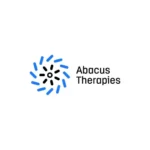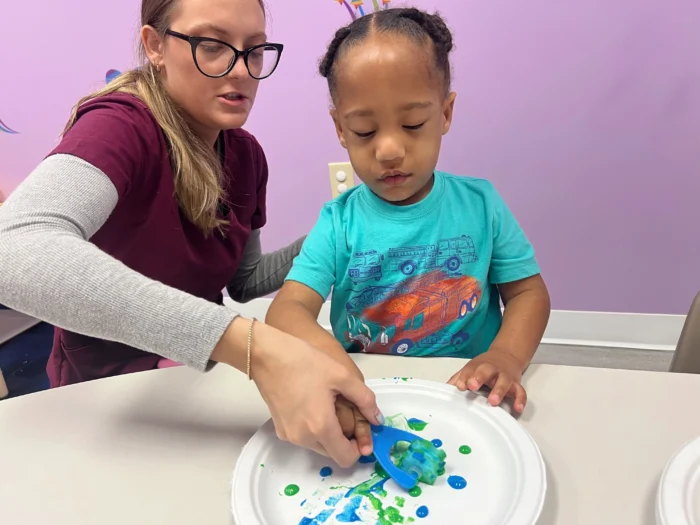Autism Laws in North Carolina: A Must-Read
14 August, 2024
For a parent of an autistic child, it is essential to understand all the laws and policies intended to safeguard your child and provide access to various services they need in order to live a more fulfilling life.
In this article, we’ll discuss the key autism laws in North Carolina — federal and state-specific — and explain what benefits they provide to your family. We’ll also take an in-depth look at the services your child can access, with a particular focus on education and financing opportunities.
North Carolina Autism Laws: Overview
Thanks to the persistent work of parents and other activists, autistic children in North Carolina are protected under several federal and state-specific laws and policies. In this section, we’ll discuss some of the key regulations that secure the rights of autistic kids and their families.
Federal Autism Policies and Laws
The main federal autism law — the one all others stem from — is the Americans with Disabilities Act (ADA). This law recognizes autism as a disability, strictly prohibits any type of discrimination against people with autism spectrum disorder (ASD), and guarantees that autistic people have the same rights and opportunities (e.g., employment and access to services) as everyone else.
Next, under the Rehabilitation Act of 1973, all individuals with disabilities, including autism, must have access to free appropriate public education (FAPE). This federal law is directly connected to the Individuals with Disabilities Education Act (IDEA), which guarantees access to special education and related services to all children and youths with disabilities from birth to age 21.
So, how exactly are these two laws connected?
It’s through an individualized education program (IEP), which the IDEA defines as the primary way to provide FAPE to all kids with disabilities. As the name indicates, it’s a highly personalized program based on the individual needs of each child. Developed, reviewed, and continuously updated by certified experts, an IEP focuses on the child’s abilities, limitations, and current level of academic success to help them accomplish the general educational goals for kids their age.
North Carolina Autism Laws and Policies
In addition to the federal laws outlined above, there is also state-specific legislation that further regulates access to treatment, support services, and other benefits for autistic children.
The most important is the 2015 Senate Bill 676 (SB 676), requiring all state-regulated health insurance plans to provide coverage for diagnosis and treatment of ASD for autistic kids aged 18 and under. This bill, which went into effect on July 1, 2016, guarantees coverage for several scientifically proven autism treatments, including applied behavior analysis (ABA) therapy.
Speaking of ABA therapy, the 2021 North Carolina Senate Bill 103 (SB 103) created licenses for Board Certified Behavior Analysts (BCBAs). These are qualified therapists who devise individual treatment plans for kids attending ABA therapy and track their progress throughout the program.
Before this law was passed, BCBAs were directly supervised by licensed psychologists, which resulted in fewer independent ABA providers, limited access to services, and the high cost of those services. This made it more difficult to find medical assistance for an autistic child.
With SB 103 now in effect, BCBAs can practice independently and make autonomous decisions. And thanks to the strict certification criteria, parents can be sure that their children are in safe and capable hands.
If you would like to get to know BCBA therapists at Abacus Therapies, you can take a look at the interview with Madeliene Smith, our lead BCBA in Charlotte, NC, or Natalie Schad, a Clinical Director and BCBA.
North Carolina and Autism Services
Some of the most notable autism services in North Carolina include the following:
- Educational services — Access to individualized education programs (IEPs), as well as specialized schools and programs for autistic children across the state.
- Therapeutic services — Access to various treatments for autistic people, including speech, occupational, and physical therapy, TEACCH programs, and ABA therapy.
- Financial services — Access to Medicaid, state-regulated insurance, grants, stipends, and other forms of financial assistance to help cover or reduce the cost of treatment.
- Other services – Access to support groups and organizations, ABA therapy training for parents, recreational opportunities, and employment support for teens and adults.
Laws About Autism and Education Rights in NC
We have already explained how the Rehabilitation Act of 1975 and IDEA guarantee free public schooling for kids on the spectrum through individualized education programs. In this section, we’ll discuss IEPs in more detail and talk about other educational options for autistic kids.
According to new autism statistics for the state of North Carolina, 1 in 39 8-year-olds in central North Carolina are on the autism spectrum.
Individualized Education Programs
According to the North Carolina General Statute 115C, Article 9, public schools must develop individualized education programs to accommodate children with disabilities, including autism.
As mentioned, these programs are based on careful evaluation of each child’s individual needs and their parents’ input and feedback. Under North Carolina state law, an IEP must be fully developed and its implementation must begin within 90 days of identifying an autistic child.
The law also mandates that the program be regularly reevaluated and updated to reflect the child’s progress and their evolving needs as they grow and learn. To ensure the IEP meets all the federal and state requirements, the teacher must fill out an NC IEP compliance checklist once a year and submit it to their team — which also includes the child’s parents — for review.
Specialized Autism Schools
North Carolina doesn’t have public schools that work exclusively with children on the spectrum. However, thanks to all the laws and regulations highlighted above, many of the state’s public schools have highly regarded autism programs focused on providing autistic kids with the support they need in inclusive environments and enhancing their academic outcomes.
Similarly, many private schools in North Carolina have strong autism programs. There are also private schools that specialize in providing education for children with disabilities, including kids with ASD. As a rule, these schools have smaller groups and lower teacher-to-student ratios, thus ensuring each student receives more attention than they would in a typical school environment.
Medicaid and Autism Law in North Carolina
Based on the 2014 guidelines published by the Centers for Medicare and Medicaid Services (CMS), all US states must provide coverage for science-backed autism treatments to all Medicaid holders aged 20 and younger. In NC, Medicaid for children with autism provides coverage for ABA therapy and other behavioral interventions deemed medically necessary.
Additionally, autistic kids and their parents might be eligible for the Supplemental Security Income (SSI) program. With SSI for autism, NC residents with little or no income and additional resources can receive a monthly stipend to cover their basic living expenses. This could be particularly useful for parents who have left their job to take care of their autistic child.
Abacus Therapies Is Your Friend in Need
Navigating autism laws can be tricky, especially if your child is getting ready to begin ABA therapy. But you don’t need to go through this alone — let Abacus Therapies guide you!
We have a team of highly skilled BCBAs with years of experience and unconditional dedication to helping your child achieve the best possible results, while also providing you with the training, guidance, and support you need to ensure your child’s success.
Abacus Therapies currently offers school-based and home-based ABA therapy in North Carolina. Starting this fall, we’ll also begin conducting ABA sessions at our new ABA therapy center in Charlotte, NC.
Make the first step and schedule a free consultation — we’ll take it from there!
FAQ
What are the federal laws on autism?
The key federal laws on autism include the Americans with Disabilities Act, the Rehabilitation Act, and the Individuals with Disabilities Education Act. Combined, these three acts recognize autism as a disability and ensure that autistic kids have free access to personalized public education.
Additionally, federal legislation also provides Medicaid coverage for various autism treatments and Supplemental Security Income for children with autism spectrum disorder and their families.
Does autism qualify for disability in NC?
Yes, under the federal Americans with Disabilities Act, the state of North Carolina — like all other US states — recognizes autism as a disability, forbids discrimination against autistic people, and guarantees they’ll have the same rights and opportunities as non-autistic people.
Is North Carolina autism–friendly?
North Carolina is a very autism-friendly state. Thanks to federal and state laws related to autism, NC residents have access to numerous services, including specialized free public education, several types of therapy (e.g., ABA therapy), and financial support for treatment.




